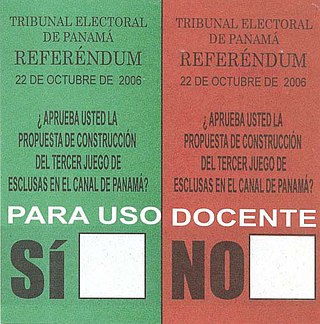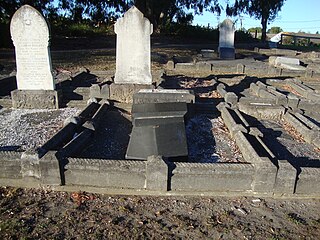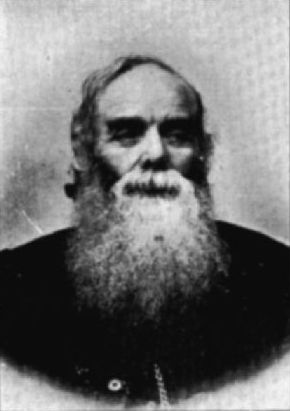Related Research Articles

Voting is a method by which a group, such as a meeting or an electorate, convenes together for the purpose of making a collective decision or expressing an opinion usually following discussions, debates or election campaigns. Democracies elect holders of high office by voting. Residents of a jurisdiction represented by an elected official are called "constituents", and the constituents who choose to cast a ballot for their chosen candidate are called "voters." There are different systems for collecting votes, but while many of the systems used in decision-making can also be used as electoral systems, any which cater to proportional representation can only be used in elections.

Avon-by-the-Sea is a borough in Monmouth County, in the U.S. state of New Jersey. As of the 2020 United States census, the borough's population was 1,933, an increase of 32 (+1.7%) from the 2010 census count of 1,901, which in turn reflected a decline of 343 (−15.3%) from the 2,244 counted in the 2000 census.
The electoral system of Australia comprises the laws and processes used for the election of members of the Australian Parliament and is governed primarily by the Commonwealth Electoral Act 1918. The system presently has a number of distinctive features including compulsory enrolment; compulsory voting; majority-preferential instant-runoff voting in single-member seats to elect the lower house, the House of Representatives; and the use of the single transferable vote proportional representation system to elect the upper house, the Senate.

New Zealand is a representative democracy in which members of the unicameral New Zealand Parliament gain their seats through elections. General elections are usually held every three years; they may be held at an earlier date at the discretion of the prime minister, but that usually only happens in the event of a vote of no confidence or other exceptional circumstances. A by-election is held to fill an electorate vacancy arising during a parliamentary term. The most recent general election took place on 14 October 2023.
The first three leaders of the Liberal Party of Canada were not chosen at a leadership convention. Alexander Mackenzie and Edward Blake were chosen by the party caucus. Wilfrid Laurier was also chosen by caucus members with the party convention of 1893 ratifying his leadership. The most recent leadership election was held in 2013.
Early voting, also called advance polling or pre-poll voting, is a convenience voting process by which voters in a public election can vote before a scheduled election day. Early voting can take place remotely, such as via postal voting, or in person, usually in designated early voting polling stations. The availability and time periods for early voting vary among jurisdictions and types of election. The goals of early voting are usually to increase voter participation, relieve congestion at polling stations on election day, and avoid possible discrimination against people with work and travel schedules that may effectively prohibit them from getting to the polls during the hours provided in a single election day.

The 1887 New Zealand general election was held on 26 September to elect 95 MPs to the tenth session of the New Zealand Parliament. The Māori vote was held on 7 September. 175,410 votes were cast. In 5 seats there was only one candidate.

The 1890 New Zealand general election was one of New Zealand's most significant. It marked the beginning of party politics in New Zealand with the formation of the Liberal Government, which was to enact major welfare, labour and electoral reforms, including giving the vote to women.
In elections in New Zealand, a special vote, also known as a special declaration vote, is a provisional ballot used in special circumstances. Special votes are cast by voters who are not able to cast an ordinary vote. The voter's eligibility to be a special voter must be confirmed before the ballot is included in the election result. The Electoral Act 1993 sets out the valid reasons an elector may qualify to be a special voter in elections of members to the New Zealand House of Representatives.

Tavua Open is a former electoral division of Fiji, one of 25 open constituencies that were elected by universal suffrage. Established by the 1997 Constitution, it came into being in 1999 and was used for the parliamentary elections of 1999, 2001, and 2006. It formed part of Ba Province in the western part of the main island of Viti Levu.

Parliamentary elections were held in Russia on 12 December 1993. They were the first parliamentary elections in post-Soviet Russia and the only time to the Federation Council, with future members appointed by provincial legislatures and governors.

Eden, a former New Zealand parliamentary electorate, lay in the general area of the suburb of Mount Eden in the city of Auckland.
Avon is a former New Zealand parliamentary electorate. It was created for the 1861 general election and existed until 1996. It was represented by 13 Members of Parliament and was held by Independents, Liberal Party or Labour Party representatives.
Northern Maori was one of New Zealand's four original parliamentary Māori electorates established in 1868, along with Eastern Maori, Western Maori and Southern Maori. In 1996, with the introduction of MMP, the Maori electorates were updated, and Northern Maori was replaced with the Te Tai Tokerau electorate.
The 2011 New Zealand voting system referendum was a referendum on whether to keep the existing mixed member proportional (MMP) voting system, or to change to another voting system, for electing Members of Parliament to New Zealand's House of Representatives. It was held on 26 November 2011 in conjunction with the 2011 general election.
Marsden was a former parliamentary electorate, in the Whangarei District and in the Northland Region of New Zealand, which existed from 1858 to 1972. Upon its abolition, Marsden was replaced with the Whangarei electorate.
Wellington, was a parliamentary electorate in Wellington, New Zealand. It existed from 1853 to 1905 with a break in the 1880s. It was a multi-member electorate. The electorate was represented, over the years, by 24 members of parliament.

Edwin Blake was a 19th-century Liberal Party Member of Parliament in Canterbury, New Zealand.

A 1889 by-election in the Lincoln electorate was held to fill a vacancy caused by the resignation of Arthur O'Callaghan from the Lincoln electorate. The by-election was won by Alfred Saunders, who beat John Ollivier.

Federal elections were held in Switzerland on 27 October 1872. The Radical Left remained the largest group in the National Council.
References
- ↑ "The Avon Election". Star. 2 June 1887. p. 3. Retrieved 23 April 2010– via Papers Past.